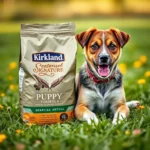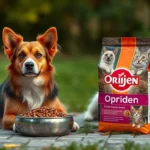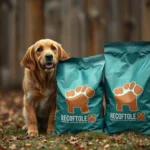
Introduction
Understanding the nutritional needs of our canine companions is crucial for their overall health and well-being. Proper nutrition not only supports a healthy weight but also contributes to a vibrant energy level and a strong immune system. Unfortunately, there are many misconceptions about what dogs can and cannot eat, leading to confusion among pet owners.
One question that often arises is can dogs eat corn flakes? In this article, we will explore this query in detail, examining the nutritional needs of dogs and the potential benefits and risks of including corn flakes in their diet.
Understanding Dog Nutrition
Essential Nutrients for Dogs
Dogs require a balanced diet consisting of several essential nutrients to thrive. These include:
-
Proteins: These are the building blocks of your dog’s body. Proteins support muscle development, repair tissues, and aid in the production of hormones and enzymes.
-
Fats: Healthy fats provide energy and support cell structure. They also help in the absorption of fat-soluble vitamins.
-
Carbohydrates: While not as essential as proteins and fats, carbohydrates provide energy and help with digestive health.
-
Vitamins and Minerals: These micronutrients are critical for various bodily functions, including bone health and immune system support.
Importance of a Balanced Diet
A balanced diet is vital for maintaining a dog’s health. Just like humans, dogs can suffer from health issues if their diet lacks essential nutrients. Poor nutrition can lead to obesity, diabetes, and other serious health problems. Ensuring that your dog receives a well-rounded diet can prevent these issues and promote a longer, healthier life.
Common Human Foods and Dogs
Foods Safe for Dogs
Many human foods are safe for dogs and can even provide health benefits. Here are some common examples:
- Fruits: Apples, blueberries, and bananas are nutritious treats.
- Vegetables: Carrots, green beans, and sweet potatoes can be great additions.
- Cooked meats: Chicken, turkey, and beef are excellent protein sources when prepared without harmful seasonings.
Foods Toxic to Dogs
Conversely, some foods can be toxic to dogs. It is essential to be aware of these to keep your pet safe:
- Chocolate: Contains theobromine, which is toxic to dogs.
- Onions and garlic: Can damage red blood cells.
- Grapes and raisins: Can lead to kidney failure.
Symptoms of food poisoning in dogs can include vomiting, diarrhea, lethargy, and loss of appetite. If you suspect your dog has ingested something harmful, consult your veterinarian immediately.
Can Dogs Eat Corn Flakes?
Nutritional Composition of Corn Flakes
Corn flakes are a popular breakfast cereal made primarily from corn, sugar, and various vitamins and minerals. Typically, they are low in fat but can vary in sugar content depending on the brand. A standard serving of corn flakes contains approximately:
- Calories: 100 calories per cup
- Carbohydrates: 24 grams
- Protein: 2 grams
- Fat: 0.5 grams
While corn flakes offer some energy and can be easy for dogs to digest, they are primarily a carbohydrate source, which may not be ideal for a dog’s diet.
Potential Benefits of Corn Flakes for Dogs
If you’re considering whether can dogs eat corn flakes, there are a few potential benefits to keep in mind:
-
Easy Digestion: Corn flakes are generally easy for dogs to digest, making them a convenient snack.
-
Source of Energy: The carbohydrates in corn flakes can provide a quick energy boost for active dogs.
-
Low-Fat Option: For dogs that may need to lose weight, corn flakes can be a low-fat treat compared to many commercial dog snacks.
Risks and Concerns
While there are some benefits, there are also several risks associated with feeding corn flakes to dogs:
-
High Sugar Content: Some brands add significant amounts of sugar, which can contribute to obesity and dental issues in dogs.
-
Additives and Preservatives: Many processed cereals contain artificial flavors and preservatives that may not be suitable for dogs.
-
Digestive Health: A diet too high in carbohydrates can lead to digestive problems, including gas and bloating.
How to Safely Introduce Corn Flakes to Your Dog
Moderation is Key
If you decide to give your dog corn flakes, moderation is crucial. It’s essential to keep the serving size small to prevent any adverse effects. A few flakes as an occasional treat should be fine for most dogs.
Monitoring for Allergies and Reactions
When introducing any new food, including corn flakes, it’s vital to monitor your dog for signs of allergies or adverse reactions. Symptoms can include:
- Itching or rashes
- Digestive upset (vomiting or diarrhea)
- Lethargy
If your dog shows any of these signs after consuming corn flakes, discontinue feeding them and consult your veterinarian.
Alternatives to Corn Flakes
Healthier Breakfast Options for Dogs
If you’re looking for healthier breakfast alternatives for your pooch, consider these options:
-
Oatmeal: A great source of fiber and nutrients that can be beneficial for dogs.
-
Rice: Plain cooked rice can be soothing for dogs with digestive issues.
-
Dog-Safe Cereals: Some brands offer cereals specifically formulated for dogs, ensuring they meet their dietary needs.
Homemade Dog Treats
Making homemade dog treats is a fantastic way to ensure your dog receives nutritious snacks without additives or preservatives. Here are a couple of easy recipes:
-
Peanut Butter Biscuits: Mix whole wheat flour, peanut butter (unsweetened), and water to create a dough. Roll it out, cut into shapes, and bake until golden.
-
Pumpkin Treats: Combine canned pumpkin, oats, and eggs. Shape into small balls and bake until firm.
Homemade treats allow you to control the ingredients and cater to your dog’s specific dietary needs.
Conclusion
In summary, the question of can dogs eat corn flakes is complex. While corn flakes can be offered as an occasional treat, they should not replace a balanced diet tailored to your dog’s nutritional needs. Always prioritize whole, nutritious foods and consult with a veterinarian to provide the best dietary guidance for your furry friend.
FAQs
Can corn flakes cause obesity in dogs?
Feeding corn flakes in moderation is unlikely to cause obesity, but excessive consumption, especially of sugary varieties, can contribute to weight gain. Always monitor portion sizes.
How often can I feed my dog corn flakes?
Corn flakes should be treated as an occasional treat rather than a regular part of your dog’s diet. A few flakes once in a while should be sufficient.
Are there any dog breeds that should avoid corn flakes?
While no specific breed must avoid corn flakes, dogs with certain health conditions, particularly those prone to obesity or diabetes, should have their diets closely monitored.
What should I do if my dog eats a large amount of corn flakes?
If your dog consumes a large quantity of corn flakes, watch for any signs of discomfort or digestive issues. If you notice any adverse symptoms, contact your veterinarian for advice.
References
- Studies and research articles on dog nutrition and dietary needs.
- Veterinary resources on dog-safe foods and potential allergens.









